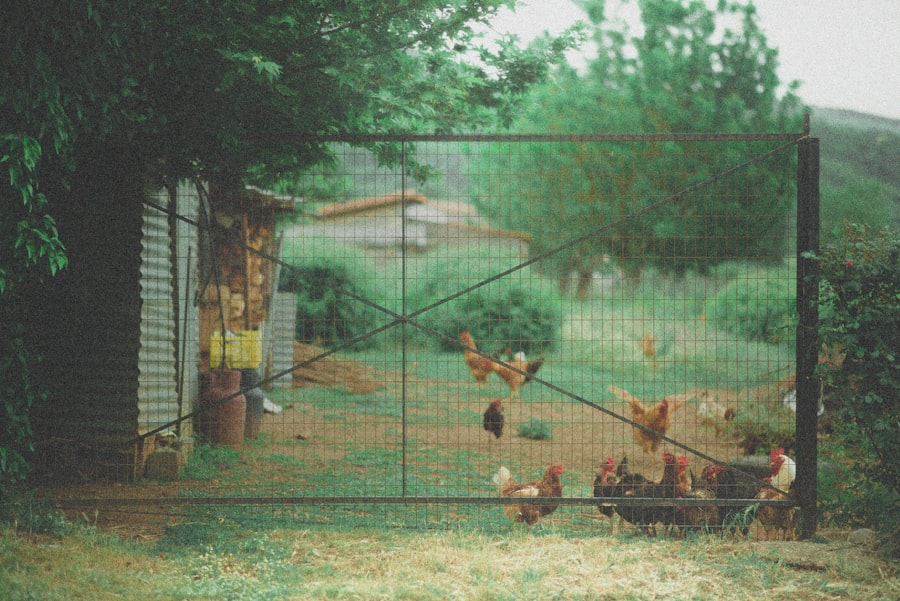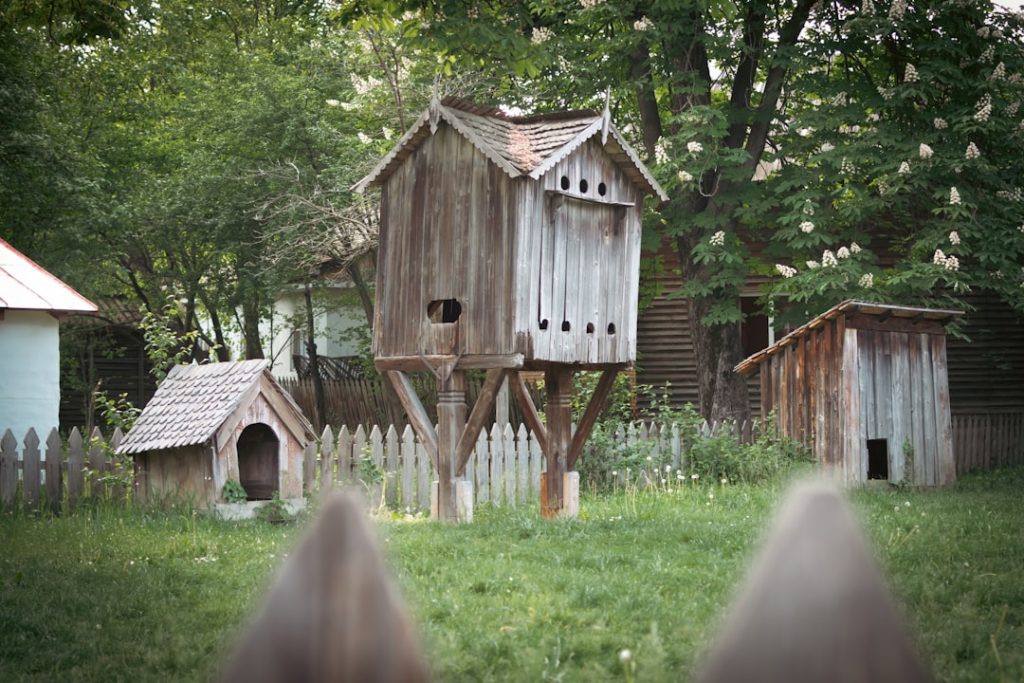When keeping chickens, it is essential to understand and comply with applicable regulations. These rules vary by region and country, covering aspects such as the number of chickens permitted, housing and fencing requirements, and waste disposal methods. Zoning laws may also restrict agricultural activities in residential areas.
National or federal laws may apply to chicken keeping, addressing animal welfare, biosecurity, and food safety concerns. Adhering to these regulations ensures responsible and legal chicken ownership. To fully comprehend the regulations governing chicken keeping, individuals should conduct thorough research and consult local authorities or agricultural organizations.
This proactive approach helps ensure compliance with the law and promotes a safe, healthy environment for chickens.
Table of Contents
Key Takeaways
- Understanding the regulations: Familiarize yourself with local laws and regulations regarding keeping chickens, including zoning, noise, and health codes.
- Factors to consider when keeping chickens: Consider the space, shelter, food, water, and healthcare needs of chickens before deciding to keep them.
- The legal limit for keeping chickens without a licence: Check the legal limit for the number of chickens allowed without a licence in your area to avoid potential fines or penalties.
- Tips for responsible chicken keeping: Practice good hygiene, provide proper care and attention, and be considerate of neighbors to ensure responsible chicken keeping.
- Potential consequences of exceeding the limit: Exceeding the legal limit for keeping chickens without a licence can result in fines, legal action, or having to rehome the chickens.
- Seeking a licence for larger chicken numbers: If you want to keep more chickens than the legal limit, seek a licence from the appropriate authorities to ensure compliance with regulations.
- Conclusion: Finding the right balance: Balancing the desire to keep chickens with legal requirements and responsible practices is essential for a harmonious and lawful chicken-keeping experience.
Factors to consider when keeping chickens
Space Requirements
One of the most critical factors to consider is the space available for keeping chickens. Chickens require a certain amount of space to roam and forage, so it’s essential to ensure that they have enough room to move around comfortably.
Housing and Fencing
In addition to space, it’s also important to consider the type of housing and fencing required for keeping chickens. This may include providing a secure coop for the chickens to roost and lay eggs, as well as fencing to keep them safe from predators.
Care and Maintenance
Another crucial factor to consider when keeping chickens is their care and maintenance. This includes providing them with a balanced diet, access to clean water, and regular health checks. It’s also important to consider the environmental impact of keeping chickens, including waste disposal and biosecurity measures to prevent the spread of disease. By considering these factors, you can ensure that you are providing a safe and healthy environment for your chickens and meeting their needs in a responsible manner.
The legal limit for keeping chickens without a licence

The legal limit for keeping chickens without a licence varies depending on the region or country. In some areas, there may be no specific limit on the number of chickens that can be kept without a licence, while in others there may be a maximum number allowed. It’s important to research the regulations in your area to determine the legal limit for keeping chickens without a licence.
In some cases, there may be exemptions for small-scale or hobbyist chicken keepers, allowing them to keep a certain number of chickens without needing a licence. However, it’s important to be aware of any restrictions or conditions that may apply to these exemptions, such as the type of housing required or biosecurity measures that must be in place. By understanding the legal limit for keeping chickens without a licence, you can ensure that you are complying with the law and avoiding any potential consequences for exceeding this limit.
Tips for responsible chicken keeping
Responsible chicken keeping involves providing a safe and healthy environment for your chickens while also being mindful of the impact on the surrounding community and environment. One tip for responsible chicken keeping is to provide adequate space for your chickens to roam and forage. This may include allowing them access to a secure outdoor area where they can scratch and peck at the ground.
Another tip for responsible chicken keeping is to provide proper housing and fencing to keep your chickens safe from predators and to prevent them from wandering into neighboring properties. This may include providing a secure coop for them to roost at night and lay eggs, as well as fencing to keep them contained. It’s also important to provide your chickens with a balanced diet and access to clean water, as well as regular health checks to ensure their well-being.
Additionally, responsible chicken keeping involves proper waste disposal and biosecurity measures to prevent the spread of disease. By following these tips for responsible chicken keeping, you can ensure that you are providing a safe and healthy environment for your chickens while also being mindful of the impact on the surrounding community and environment.
Potential consequences of exceeding the limit
Exceeding the legal limit for keeping chickens without a licence can have potential consequences, including fines, legal action, or having to rehome some of your chickens. If you exceed the legal limit for keeping chickens without a licence, you may be in violation of local regulations and could face penalties as a result. In addition to potential legal consequences, exceeding the limit for keeping chickens without a licence can also have negative impacts on the surrounding community and environment.
This may include increased noise and odors from a larger number of chickens, as well as potential biosecurity risks if proper measures are not in place. By being aware of the potential consequences of exceeding the legal limit for keeping chickens without a licence, you can ensure that you are complying with the law and avoiding any negative impacts on your community and environment.
Seeking a licence for larger chicken numbers

Keeping a Large Number of Chickens
Obtaining a Permit or Licence
If you wish to keep a larger number of chickens than is allowed without a licence, you may need to seek a permit or licence from local authorities. This process may involve submitting an application, providing details about your property and housing for the chickens, and demonstrating that you have proper biosecurity measures in place.
Meeting Specific Requirements
When seeking a licence for larger chicken numbers, it’s important to be aware of any specific requirements or conditions that may apply. This may include providing evidence of adequate space for the chickens, demonstrating that you have proper waste disposal measures in place, or showing that you have taken steps to mitigate any potential impacts on the surrounding community.
Ensuring Compliance and Responsibility
By seeking a licence for larger chicken numbers, you can ensure that you are complying with the law and providing a safe and healthy environment for your chickens while also being mindful of the impact on your community and environment.
Finding the right balance
In conclusion, keeping chickens can be a rewarding and enjoyable activity, but it’s important to understand and comply with the regulations that govern this practice. By considering factors such as space, housing, care, and maintenance, you can ensure that you are providing a safe and healthy environment for your chickens in a responsible manner. It’s also important to be aware of the legal limit for keeping chickens without a licence and to seek a permit or licence if you wish to keep a larger number of chickens.
By being proactive and informed, you can ensure that you are complying with the law and avoiding any potential consequences for exceeding the limit. Ultimately, finding the right balance when keeping chickens involves meeting their needs while also being mindful of the impact on the surrounding community and environment. By following responsible chicken keeping practices and complying with regulations, you can enjoy the benefits of keeping chickens while also being a good neighbor and steward of the environment.
If you’re considering keeping chickens without a license, you may also be interested in learning about different types of chicken coops. The Producers Pride Sentinel Chicken Coop and the Garden Chicken Coop are both great options for housing your feathered friends. Check out this article for more information on these coop options.
FAQs
What is the legal limit for keeping chickens without a licence?
In many areas, the legal limit for keeping chickens without a licence is around 50 to 100 birds. However, this can vary depending on local regulations and zoning laws.
Do I need a licence to keep chickens?
In some areas, you may need a licence to keep chickens, especially if you exceed the legal limit for the number of birds allowed without a licence. It’s important to check with your local government or agricultural department to determine the specific requirements for your area.
What are the regulations for keeping chickens in urban areas?
Many urban areas have specific regulations regarding the keeping of chickens, including limits on the number of birds allowed, coop requirements, and distance from neighboring properties. It’s important to familiarize yourself with these regulations before keeping chickens in an urban setting.
Are there any health or safety considerations when keeping chickens?
Yes, there are several health and safety considerations to keep in mind when keeping chickens, including proper sanitation, disease prevention, and predator protection. It’s important to research and understand these considerations before starting a chicken-keeping venture.
What are the benefits of keeping chickens?
Keeping chickens can provide a sustainable source of fresh eggs, natural pest control in the garden, and the opportunity to connect with nature and learn about animal husbandry. Additionally, chickens can be a source of entertainment and companionship for their owners.

Meet Walter, the feathered-friend fanatic of Florida! Nestled in the sunshine state, Walter struts through life with his feathered companions, clucking his way to happiness. With a coop that’s fancier than a five-star hotel, he’s the Don Juan of the chicken world. When he’s not teaching his hens to do the cha-cha, you’ll find him in a heated debate with his prized rooster, Sir Clucks-a-Lot. Walter’s poultry passion is no yolk; he’s the sunny-side-up guy you never knew you needed in your flock of friends!
Meet Walter, the feathered-friend fanatic of Florida! Nestled in the sunshine state, Walter struts through life with his feathered companions, clucking his way to happiness. With a coop that’s fancier than a five-star hotel, he’s the Don Juan of the chicken world. When he’s not teaching his hens to do the cha-cha, you’ll find him in a heated debate with his prized rooster, Sir Clucks-a-Lot. Walter’s poultry passion is no yolk; he’s the sunny-side-up guy you never knew you needed in your flock of friends!







